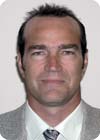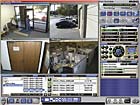To Serve and Access

Ken Geiszler, president of Keri Systems, has seen a lot; and, with the recent acquisition of high-end access tech firm Digital Horizon Solutions, he firmly believes he’s going to see and influence a lot more.
Keri Systems has become one of the fastest growing card access control systems manufacturers in the world. The original founder of Indala Corporation, the early pioneers and market leaders in digital proximity readers and proximity cards, started Keri Systems in 1990. Located in the heart of California’s famed Silicon Valley, the company draws on the area’s wealth of technological expertise and security industry professionals to bring a focused diversity of products to the card access control systems market. What follows is an interview with Geiszler in Security Magazine’s Visions series.

“While technology is always important, the best way to succeed is to keep customers happy by providing excellent service, quality products and a competitive price,” said Ken Geiszler, president of Keri Systems, San Jose, Calif.
Security Magazine: Describe your mission.
Geiszler: Access control is our focus. We strive to be a cost effective, quality solution, backed by exceptional service.But things have changed since we founded the company in 1990. In the access control arena, there now is a prevalence of IT with TCP- IP backbones, quick sharing of data. In fact, there is more sharing of the access data with other applications, not just security, such as time and attendance, human resource and benefits, for example.
Access systems always have protected tangible assets. But now there are terrorism concerns. And access control, the traditional door controls, now covers identification as well as control. Now it is verification, including smart cards and biometrics.
Security Magazine: What is the impact of your recent acquisition of Digital Horizon Solutions (DHS) of Texas?
Geiszler: DHS will remain a separate company. That firm shares our passion for service, too. The industry should look at us together as (a kind of) Toyota and Lexus. Each has its purpose and end-users. DHS covers enterprise class while Keri has handled applications from one-door to mid-size company needs. End-users will gain from our sharing of technology.Security Magazine: How are market and technology changes impacting you and your customers?
Geiszler: Getting back to the issue of service, an ability to provide excellent service, through dealers and integrators, is extraordinarily important. But I also see that IT distribution houses are getting into the business. It’s obvious that nonprogressive distribution is at risk. Even lock and door hardware folks are moving more upscale. But it is also obvious that you cannot be all things to all people.The security industry relative to overall technology is not a large industry. I believe that being on the leading edge is great but being on the bleeding edge is not.
In addition, some things are turning into a commodity – for example video hardware. There’s a shift to more sophisticated solutions. But there are dangers. Browsers, for example, are not as secure as some think.

From enterprise class operations to mid- and smaller applications, the key for traditional product manufacturers is to have a diversity of products from access panels and telephone entry to video integration, according to Ken Geiszler, president of Keri Systems, San Jose, Calif.
Security Magazine: What is your vision of access control’s future?
Geiszler: It’s evolutionary. There will be more advances in door controls and firmware. Telephone entry continues to have a strong presence and use. More facilities have telephone infrastructure then their ability to invest in broadband, for example. And platforms will more often combine access control and digital video.The enterprise class advances also are exciting and reflected in (the acquisition of) Digital Horizon Solutions. DHS’ flagship product, Eclipse 700 software, with its sophisticated feature set and flexible programming, is non-proprietary Mercury Security hardware platform used by many other access control software manufacturers. John Carter, DHS president, tells me that our team has a proven track record of excellent customer service, strong distribution and a winning attitude.
Looking for a reprint of this article?
From high-res PDFs to custom plaques, order your copy today!






